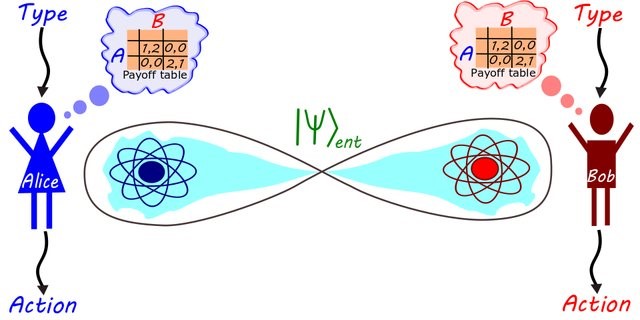behavioural
epigenetics

The author, Margaret Tyson, was an honorary researcher at the Institute of Cancer Sciences, The University of Manchester and now researches epigenetics particularly of cancer and schizophrenia. She also runs Manchester Amputee Fitnesss Initiative and Karen's Page.
 |
Real Voices?
Quantum entanglement
Definition: "Quantum entanglement refers to the phenomenon in quantum physics where two or more particles become connected in such a way that the state of one particle cannot be described independently of the state of the other particles, regardless of the distance between them. This property is crucial for various applications in quantum information processing, including quantum communication and quantum teleportation. AI generated definition based on: Annals of Physics, 2016"
This is proposed to take place between two people in telepathy (1-6) and, for instance, healing (7).
It is proposed here that the voices heard in schizophrenia are in fact the result of quantum entanglement between people resulting in telepathy. Telepathy is apparently a widely accepted although scientifically questioned phenomenon (1-6) and perhaps "voices" should be accepted in a similar way.
Diagram: mechanism for quantum communication
Manik Banik1, Some Sankar Bhattacharya2, Nirman Ganguly3, Tamal Guha4, Amit Mukherjee5, Ashutosh Rai6,7,8, and Arup Roy1 Two-Qubit Pure Entanglement as Optimal Social Welfare Resource in Bayesian Game https://quantum-journal.org/papers/q-2019-09-09-185/
Here is a video by Prof Brian Cox about quantum entanglement. It shows that it can take place over vast distances or in close proximity as in the brain (For the link please click on the photo).
In a paper by Hyland (7) the hypothesis that the therapeutic interaction involves some kind of 'entanglement' between people is proposed. Different versions of the theory that entanglement is possible between people are examined. The way in which this happens and the way it has a therapeutic effect are looked at in the paper. The two main versions are specific entanglement and global, emergent entanglement-specific entanglement.
Quantum entanglement has been proposed several times for telepathy and in healing as shown above. It is proposed here that hearing voices in schizophrenia is in fact telepathy but involves distress due to the voices.
In schizophrenia people report hearing voices and perceive that these voices are real (8 9). These voices are seen as symptoms of the auditory hallucinations reported by Health Care Professionals. The parts of the brain that are affected are similar to those in actual hearing (10)
In support of this hypothesis research has shown that quantum entanglement may underlie different processes in the brain (11-13) such as consciousness (14).
References
1. Erickson D. Intuition, Telepathy, and Interspecies Communication: A Multidisciplinary Perspective. NeuroQuantology 2011;9:145-52. doi: 10.14704/nq.2011.9.1.399
2. Gao S. A Primary Quantum Model of Telepathy. SSRN Electronic Journal 2002 doi: 10.2139/ssrn.3076089
3. Dalla Chiara ML, Giuntini R, Leporini R, et al. Quantum information, cognition, and music. Frontiers in Psychology 2015;6 doi: 10.3389/fpsyg.2015.01583
4. de Peyer J. Uncanny Communication, Psychoanalysis and the Porous Mind2015.
5. Xue Y. Basic Theory of Quantum Entanglement and the Possibility of Passing on Information Faster than the Speed of Light. IOP Conference Series: Earth and Environmental Science 2021;658:012001. doi: 10.1088/1755-1315/658/1/012001
6. Venkatasubramanian G, Jayakumar PN, Nagendra HR, et al. Investigating paranormal phenomena: Functional brain imaging of telepathy. International journal of yoga 2008;1(2):66-71. doi: 10.4103/0973-6131.43543 [published Online First: 2008/07/01]
7. Hyland ME. Does a form of 'entanglement' between people explain healing? An examination of hypotheses and methodology. Complementary therapies in medicine 2004;12(4):198-208. doi: 10.1016/j.ctim.2004.10.002 [published Online First: 2005/01/15]
8. Hugdahl K, Løberg EM, Specht K, et al. Auditory hallucinations in schizophrenia: the role of cognitive, brain structural and genetic disturbances in the left temporal lobe. Frontiers in human neuroscience 2007;1:6. doi: 10.3389/neuro.09.006.2007 [published Online First: 2008/10/30]
9. Beyer A. Schizophrenic voices as spirit communication and telepathy. Psychosis 2021;13:1-1. doi: 10.1080/17522439.2020.1862286
10. Ikuta T, DeRosse P, Argyelan M, et al. Subcortical modulation in auditory processing and auditory hallucinations. Behav Brain Res 2015;295:78-81. doi: 10.1016/j.bbr.2015.08.009 [published Online First: 2015/08/16]
11. Fisher MPA. Quantum cognition: The possibility of processing with nuclear spins in the brain. Annals of Physics 2015;362:593-602. doi: https://doi.org/10.1016/j.aop.2015.08.020
12. Rocchesso D, Mannone M. A quantum vocal theory of sound. Quantum Information Processing 2020;19(9):292. doi: 10.1007/s11128-020-02772-9
13. de Peyer J. Uncanny Communication, Psychoanalysis and the Porous Mind2015.
14. Kerskens CM, López Pérez D. Experimental indications of non-classical brain functions. Journal of Physics Communications 2022;6(10):105001. doi: 10.1088/2399-6528/ac94be

.jpg)